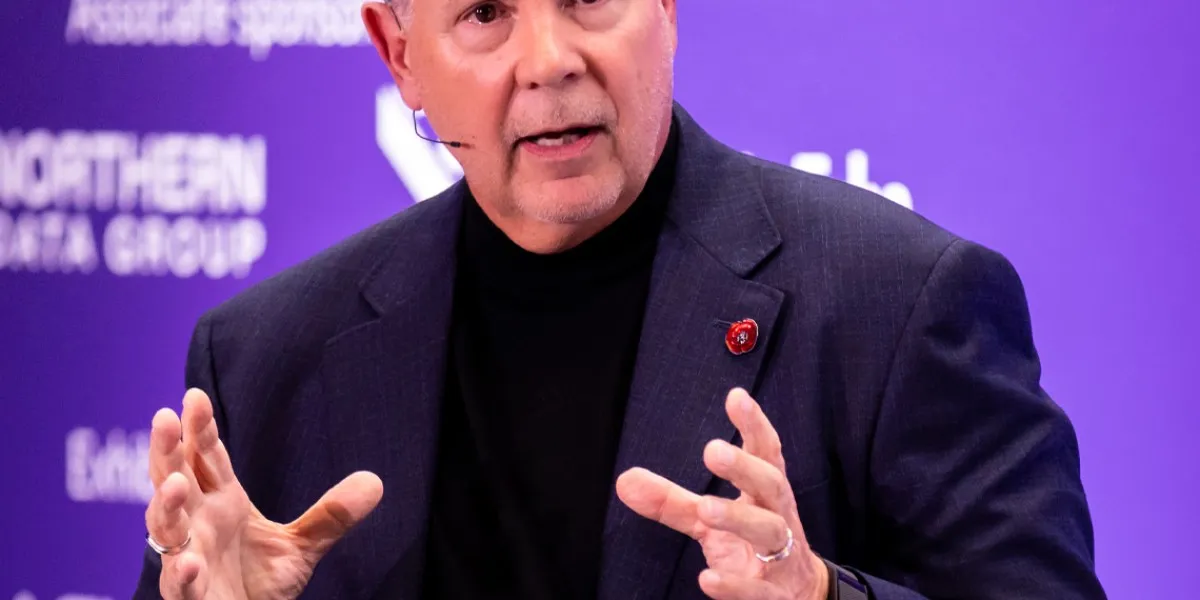
Throughout 2023 and into the early months of 2024, IgniteTech underwent a significant transformation under the leadership of CEO Vaughan. The company made the tough decision to replace hundreds of employees, although Vaughan refrained from disclosing specific figures. In an interview with Fortune, he stated, “That was not our goal. It was extremely difficult … But changing minds was harder than adding skills.” This period marked a brutal reckoning for the organization, but Vaughan insists it was a necessary step that he would take again if given the chance.
For Vaughan, the urgency of adapting to artificial intelligence was evident early in 2023. He expressed his belief that every tech company faced a pivotal moment regarding AI adoption. “Now I’ve certainly morphed to believe that this is every company, and I mean that literally every company, is facing an existential threat by this transformation,” he explained. While many viewed AI as an opportunity, Vaughan saw it as a critical challenge that could jeopardize even the strongest businesses.
To address this urgent need, Vaughan convened an all-hands meeting with his global, remote team, announcing a shift in focus. The previous comfortable routines and quarterly goals were replaced with a singular emphasis on AI. “We’re going to give a gift to each of you. And that gift is a tremendous investment of time, tools, education, projects … to give you a new skill,” he stated. IgniteTech began reimbursing employees for AI tools and prompt engineering classes, even enlisting outside experts to promote AI integration.
Vaughan instituted “AI Mondays,” where employees were required to dedicate their entire workday to AI projects, excluding customer calls or budget work. This initiative extended beyond tech roles, encompassing sales, marketing, and other departments, as Vaughan emphasized the importance of building a culture centered on AI. However, this massive investment—20% of payroll directed toward a mass-learning initiative—met with significant resistance, including outright sabotage from some employees.
Vaughan encountered unexpected pushback, particularly from technical staff, who were the most resistant to the AI shift. Instead of embracing the possibilities of AI, many voiced concerns about its limitations. This resistance is echoed by research from WRITER, which found that one in three workers acknowledged “actively sabotaging” their company’s AI rollout. The figure rises to 41% among millennial and Gen Z employees. Such sabotage can manifest in various ways, including reluctance to adopt new AI tools or producing poor-quality outputs.
According to WRITER’s Chief Strategy Officer Kevin Chung, the resistance is not solely due to fear of AI taking over jobs but arises from frustration with ineffective AI tools and unclear strategies from leadership. “When you’re handed something that isn’t quite what you want, it’s very frustrating,” he explained. This situation leads employees to seek alternative solutions, resulting in what is termed “shadow IT.”
To overcome these challenges, Vaughan realized that belief in the AI vision was essential. He emphasized the need to recruit individuals who shared this belief, leading to a significant recruiting effort for “AI Innovation Specialists” across all departments, including sales and finance. This period of transition was turbulent, as the company struggled to define its new identity. Key hires, including Thibault Bridel-Bertomeu as IgniteTech’s chief AI officer, facilitated a reorganization that centralized AI efforts across divisions, helping to eliminate redundancy and foster knowledge sharing.
Despite the difficulties faced during this transformation, IgniteTech achieved remarkable outcomes. By the end of 2024, the company successfully launched two patent-pending AI solutions, including Eloquens AI, a platform for AI-based email automation. Financially, IgniteTech remained robust, with Vaughan reporting a “near 75% EBITDA” while executing a major acquisition of Khoros. He highlighted the company’s ability to develop new customer-ready products in an astonishing four days—an unthinkable timeline under the previous regime.
Vaughan’s experience serves as a case study in the complexities of change management. His approach addresses key challenges identified in WRITER’s survey, including the need for a clear strategy, adequate investment, and alignment between IT and business units. Joshua Wöhle, CEO of Mindstone, noted similar challenges faced by organizations as they navigate AI integration.
Wöhle presented two contrasting approaches to AI adoption: reskilling existing employees versus mass replacement. He cited Ikea’s strategy of enhancing employee skills rather than eliminating jobs, contrasting it with Klarna’s method of reducing customer support staff only to later rehire for the same roles. He argued that augmentation, rather than automation, is the more humane approach to integrating AI into the workforce.
As Vaughan reflects on the challenges of IgniteTech's transformation, he acknowledges the necessity of cultural change alongside technological advancement. He does not advocate for others to replicate his approach of replacing a significant portion of staff but emphasizes the importance of aligning the entire organization towards a shared vision of AI integration. “This is not a tech change. It is a cultural change, and it is a business change,” Vaughan stated, reinforcing the idea that without collective belief and commitment, organizations risk stagnation and irrelevance in the evolving landscape of AI.